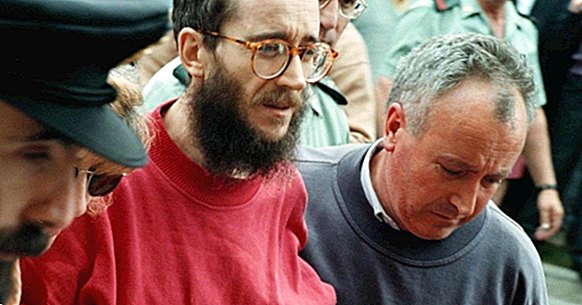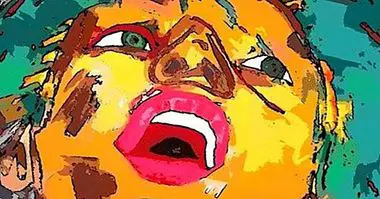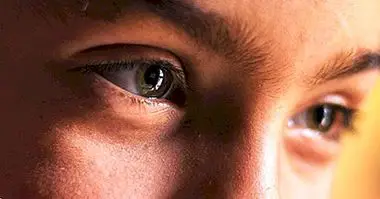The Ortega Lara case, 532 days in a zulo: an interview with Dr. José Cabrera
The kidnapping of José Antonio Ortega Lara (1958, Montuenga, Spain) by the terrorist group ETA shocked an entire country.
Ortega Lara was a humble Spanish prison official who was kidnapped in January 1996, by a commando of the terrorist organization ETA (Euskadi Ta Askatasuna). He was surprised near his car, in the garage of his own house, when he was about to move to his place of work. At that moment, two individuals, at gunpoint, forced him to enter a kind of sarcophagus located in the trunk of a van. In complete darkness, he was transferred to a hiding place from which he would not leave in a long time.
Obliged to remain in a hole for 532 endless days
Soon after, the terrorist group announced the authorship of the kidnapping in the state media. He asked, in exchange for the release of Ortega, that the prisoners of the organization be brought closer to the prisons of the Basque Country . Requirement that, as expected, was ignored by the Ministry of the Interior, then directed by Jaime Mayor Oreja.
The Spanish State did not accede to the claims of the terrorists, so Ortega Lara was indefinitely detained in an underground hole built in an abandoned industrial warehouse in the town of Guipuzcoa. Mondragón . Locked in that dark cage, Ortega Lara remained living, unable to leave even a moment, in a space where he could barely move, with terrible humidity, without any contact with the outside and with the constant threat that the terrorists decided to execute him. Although all the circumstances seemed to play against a desperate and increasingly squalid Ortega Lara, the police managed to narrow the siege on the authors of his kidnapping and captivity, to the point where the captors confessed the location of the hiding place where Ortega Lara remained. He was released in July 1997, a year and a half after the day he was abducted.
Documentary about the Ortega Lara case
If you want to know all the details of the case and the experiences lived by José Antonio Ortega Lara, do not miss this documentary made by TeleMadrid .
Interview with Dr. José Cabrera Forneiro, forensic psychiatrist
One of the people who knows this case best is Dr. José Cabrera Forneiro, a well-known forensic psychiatrist and a regular in the media of our country.
With him we wanted to share a conversation about the case of José Antonio Ortega Lara, not only because of the social impact it caused but also because of everything related to the mental health of an individual who literally had to endure hell in life. Dr. Cabrera is one of the people who knows best what happened and what the kidnapped had to live, and does not hide the torrent of emotions that we all suffer when recalling this gruesome event in the History of Spain.

Bertrand Regader: Good morning, Doctor Cabrera. It is an honor to be able to share this space with you in order to analyze the kidnapping case of Ortega Lara. Twenty years have passed since José Antonio Ortega Lara was kidnapped and held by ETA. How did Spanish society live those moments? What are your personal feelings when you remember this murky episode?
Doctor José Cabrera : Spanish society endures everything, especially when the news is in the media and "far from us". That episode was experienced as a further addition to the cloud of attacks, threats and extortion of the moment, we would say that it was almost lived as in a state of anesthesia, and it was more the energy that the Security Forces and bodies overturned and the media that the social fabric
My personal sensation was of disgust towards some merciless kidnappers who fought for an unjust cause by beating a simple official.
We are talking about a person who was held against his will in an uninhabitable area, without the possibility of leaving and knowing that, most likely, ETA was going to kill him one day or another. How does a human being face an existence with these terrible conditions and what psychological characteristics helped Ortega Lara to endure so long?
The human being throughout history has endured the most terrible torments, punishments, revenges and situations, voluntarily or involuntarily, you just have to apply the instinct of survival and find a meaning to stay alive.
In the case of Mr. Ortega Lara, there were three conditions that helped him: he was a believer, he had a family that he wanted and wanted to see again, and he was a methodical man with a great inner life, these three were the pivots of your survival
In an interview granted to TeleMadrid, Ortega Lara confessed to having planned his suicide through several mechanisms, although he never managed to press that button. Is it normal for this to happen in cases of prolonged kidnappings?
Suicide always arises in the face of a final situation of despair in which suffering can not be tolerated anymore and the exit does not exist. It is a defense mechanism against sensory and affective deprivation, that is to say, "I have arrived so far".
However, experience tells us that those people who have endured an inhuman captivity almost never execute a suicide, and yet after the time these same people already released if they have ended their lives, for example the case of Primo Levi .
Happily, and after a long ordeal, the police found the whereabouts of Ortega Lara and could free him. According to the own Ortega Lara, when the civil guard that went to rescue him agreed to the zulo, the hostage believed that this individual was in reality a disguised terrorist who was going to execute him, in a kind of macabre staging. Why do you think he reacted in this way?
In a state of silence and absence of external referents, only the very idea of the captive intervenes, which creates in a compensatory way a life around the few contacts he has with his captors.
In this situation Mr. Ortega Lara, who was constantly waiting for death, could not understand that suddenly appeared a person in uniform of the Civil Guard to release him, simply did not fit in his head, and simply believed that the end had come.
When he was released, Ortega Lara had lost more than 20 kilos, in addition to having the vocal cords and atrophied sense of sight. We all have in the retina the image of Ortega, scrawny and bearded, walking with the help of his family shortly after the rescue. But I guess the psychological sequels were even more terrible, and lasting.
The physical prostration of captivity tends to go back over time, it is a matter of reusing the muscles, the voice, the eyes, the senses ... but the psychological impact is something else.
The sense of impunity of their captors, the feeling of injustice towards their person, the emptiness of loneliness, the remoteness of their own, the incomprehension of the facts and the threat of permanent death, modify the personality for life turning the future into something completely new and different from what is expected in a normal life, and with that and the memories you have to keep living, that's as simple as that.

There is a lot of talk about the moral and psychological integrity of José Antonio Ortega Lara, and it's no wonder. What are the mental strengths that an individual must develop to return to "normal" after living such a calamitous situation?
The first is to understand what has happened is to say: accept that it was a criminal act of a terrorist group that caught him by chance, to avoid guilt that is not rare in these cases. The second, gradually recover from the physical consequences, little by little and in the distance from the bustle. The third, abandon yourself in the arms of the people who love you and are the key to your resistance, enjoy their mere company, simple conversations, a recount of what happened for them and that captivity deprived them.
And finally letting yourself be advised by a professional in medicine and / or psychiatry to follow a gentle treatment that recomposes the sleep-alert cycles and the discouragement generated by suffering.
Ortega Lara also said that during his captivity he spoke alone, he imagined that his wife was with him and uttered phrases out loud to her. Do you think this is useful in situations of that kind?
Yes, it is definitely very useful to create an imaginary figure to talk with, to accompany us, to keep hope and to mitigate physical loneliness.
The normal thing is to recreate the person of the closest family, and sometimes not just one but several, establish full and dense conversations that fill the endless day and say goodbye to them at bedtime.
I do not want to end the interview without asking the other side of the coin. The kidnappers, the terrorists. It only occurs to me to think that holding a person for so long, a simple official without political responsibilities and with a family ... can only be explained by the most inhuman fanaticism. Ortega usually refers to Bolinaga, the boss of the operation, as a poor bastard, an unhappy man.
They will allow me not to utter a single word about these subjects that tarnish the concept of human dignity, not a word, that they carry out their sentences in solitude and oblivion, it is more than what they offered to their victims.



















